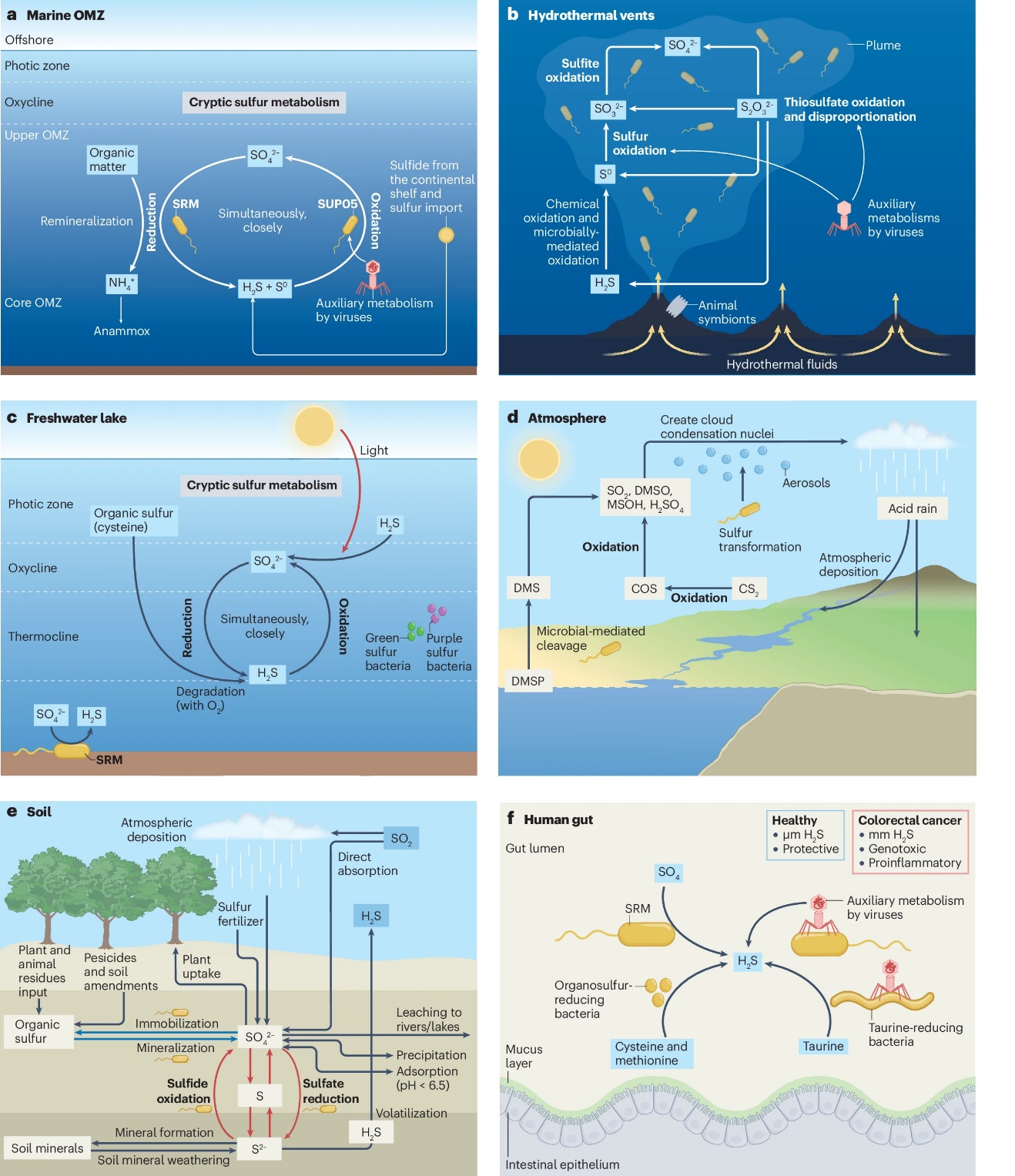On October 17, 2024, Asso. Prof. Zhou Zhichao's research group published a comprehensive review titled "Diversity and ecology of microbial sulfur metabolism" in Nature Reviews Microbiology. This review presents an in-depth analysis of recent progress in understanding microbial sulfur metabolism, emphasizing its diversity and ecological significance. The review highlights the critical roles played by microorganisms in driving sulfur cycling through oxidation, reduction, and disproportionation reactions. These processes not only support microbial energy production but also facilitate the assimilation of sulfur compounds essential for biological functions, such as the synthesis of amino acids, proteins, coenzymes, and vitamins. In particular, the review underscores the contributions of viruses to sulfur-related metabolic activities, offering new perspectives on how microbial communities and viruses interact in sulfur transformations within various ecosystems. Professor Zhou Zhichao from the Institute for Advanced Study at Shenzhen University is listed as the co-first author, and Shenzhen University is the lead institution for the publication.
Sulfur is a key element in Earth's biogeochemical cycles, playing a crucial role in all major environmental compartments, including the atmosphere, lithosphere, hydrosphere, and biosphere. In the biosphere, sulfur is indispensable for numerous biological functions. Microbial sulfur metabolism, which occurs in both aerobic and anaerobic environments, is closely intertwined with other elemental cycles, such as carbon, nitrogen, and iron. Through their metabolic activities, microorganisms influence organic carbon consumption, nitrogen loss, and the production of gases with significant implications for the global climate. The review provides a detailed examination of microbial sulfur metabolism across different ecosystems, including marine, freshwater, terrestrial, atmospheric, and even human gut systems. It also explores how viruses modulate these processes in different ecological contexts. The paper’s findings offer valuable insights into the complexity and diversity of sulfur metabolism in microorganisms and emphasize the importance of microbial and viral interactions in global sulfur cycling. This research was supported by the Synthetic Biology Research Center and the Young Faculty Start-up Fund at Shenzhen University.
Original article link:https://www.nature.com/articles/s41579-024-01104-3

Fig. 1. Overview of the global sulfur cycle

Fig. 2. Microbial interactions in sulfur cycling across marine, freshwater, atmospheric, soil, and human gut systems


